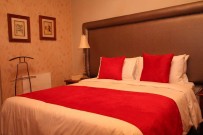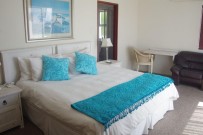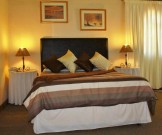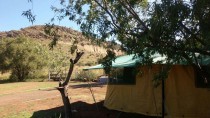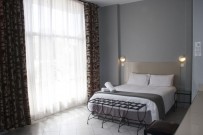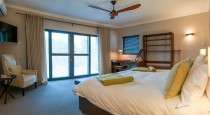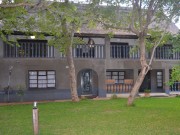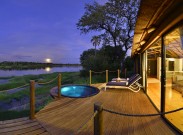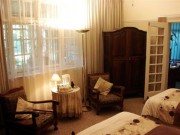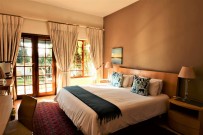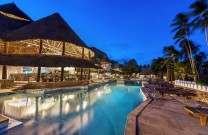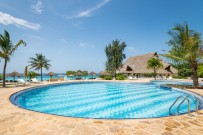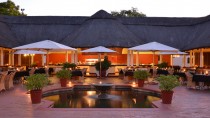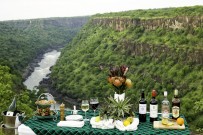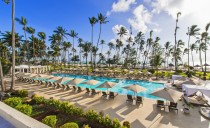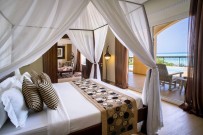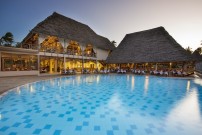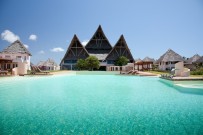Search results for 'How to buy fifa 23 coins without gettithout gettithout getting banned fas fas fasd fas fa fas fs af sadffas fas.2342342342342'
Maximum words count is 10. In your search query was cut next part: fas fasd fa fs af sadffas fas.2342342342342.
-
Home away from home
33 on First Guest House-Melvil...
ZAR750.00
ZAR700.00
33 on First Guesthouse is situated in the heart of trendy and arty Melville, known for its restaurants, antique and quaint shops. At 33 On First we will certainly do our best to make your stay as comfortable and pleasant as possible
Learn MoreHome away from home
Chez Belle
ZAR900.00
ZAR870.00
Chez Belle is a charming 1 bedroom self-catering cottage that sleeps 2 people, situated in the leafy suburb of Constantia, in a secure area. The room has a double bed and en-suite shower, fully fitted kitchen with tea, coffee and sugar provided on a daily basis. The cottage has satellite TV, radio/CD player, hair dryer, mini safe for valuables, fan/heater, laundry service available on request at an additional charge, wireless connection by arrangement, braai facilities on request, pool and beauty salon on site. The cottage is serviced from Monday to Friday (not on the weekends and public holidays). Fresh linen is provided and changed regularly and fresh towels are replaced every two to three days or as and when necessary. The cottage has its own entrance and one on-site parking. Chez Belle is ideal for tourists as well as businessmen. Learn MoreHome away from home
Aristotle Guest House
ZAR600.00
ZAR570.00
Located a 10 minutes walk to the beach and with Indian Ocean and Port Elizabeth Harbour views, Aristotle Guest House offers serviced guest rooms and self- catering flats with air-conditioning.
There is an outdoor pool and a garden.
 A full English breakfast is served daily in the breakfast room. Several restaurants, cafe’s, shops and bars are within a 15-minute walk away. The Aristotle Guest House has braai/barbeque facilities and dinner is available upon request. Guests can sunbathe poolside or relax in the seated garden area overlooking the pool.
Upe Private Nature Reserve is a 13-minute drive away and Addo Elephant National Park is a 1-hour drive away by car.
Learn MoreHome away from home
The Garden Lodge Guest House
ZAR490.00
ZAR460.00
The Garden Lodge Guest House, B&B and self catering apartments in Uitenhage, offers affordable, neat and clean accommodation, at good prices. Each room has its own entrance and bathroom. We have fully equipped self-catering units that can sleep up to six guests. All self-catering units and rooms have Dstv channels, coffee and tea facilities, air-conditioning and a bar fridge.
For our corporate guests, visiting Uitenhage, we offer a relaxing, quiet atmosphere after a long day at work. The bed & breakfast has full under cover parking inside electric security gates, a plunge pool and braai area, as well as telephone, fax, wireless internet and laundry services.
Learn MoreHome away from home
Kloofeind Caravan Lodge &...
ZAR220.00
ZAR200.00
Our facilities have shared ablutions, We also have a licenced Pub on site, and a small shop which caters for basic necessities.
The setting is rural and offers endless opportunities for Hikers and Quadbikers. Please send us an enquiry stating your specific needs and we will try our best to assist.
Learn MoreHome away from Home
N1 Hotel Victoria Falls
ZAR1,600.00
ZAR1,496.00
The Victoria Falls, a UNESCO world heritage site, and on the bucket list of many travelers around the world. If you are looking for clean simple budget accommodation in Victoria Falls, look no further.
The N1 Hotel provides all the basic necessities for a good night’s sleep, from en-suite showers to air conditioned rooms. Situated in Victoria Falls, this hotel is within 3 mi (5 km) of Victoria Falls Bridge, Victoria Falls National Park, and Mosi-oa-Tunya National Park.
Learn MoreHome away from home
Ilala Lodge Hotel, Victoria Fa...
ZAR7,100.00
ZAR6,952.00
Explore the lush wilderness surrounding the town on a thrilling game drive, surf the rapids on a Zambezi River white water rafting expedition, get your heart racing when you bungee jump off the Victoria Falls bridge, or simply enjoy a legendary Zimbabwean sunset from the comfort of the Ra-Ikane river cruiser. These, and many more Victoria Falls activities are available directly from Ilala Lodge - a rarity within many Victoria Falls hotels and accommodation establishments.
Wild animals, such as warthog and impala, often graze on the hotel lawns and provide exciting entertainment for hotel guests. Restaurant diners, on the other hand, can see and hear the majestic roar of the 'Smoke That Thunder' while they sample Zimbabwe's finest a la carte cuisine at The Palm Restaurant. With tranquil views, an elegant ambience, and an exceptional and diverse menu, dinner at the Palm Restaurant is an experience in and of itself. Ilala Lodge Hotel Victoria Falls, perfectly located in the warm and welcoming heart of Zimbabwe's tourism capital, invites you to discover exceptional hospitality and cheerful service.
Learn MoreHome away from home
Mopani Lodge Victoria Falls
ZAR2,100.00
ZAR1,999.00
Situated in Victoria Falls, this farm stay is within 3 mi (5 km) of Victoria Falls National Park, Victoria Falls Private Game Reserve, and The Victoria Falls National Park. Victoria Falls Bridge and Victoria Falls National Park are also within 3 mi (5 km). Learn MoreVictoria Falls River Lodge-Zam...
ZAR5,300.00
ZAR5,230.00
The Victoria Falls River Lodge luxury tents are nestled on the banks of the mighty Zambezi, one of the most famous rivers in the world. Built upon raised decks, and sheltered by an extensive thatched roof, the 13 luxurious and tents are tastefully decorated in earthy hues with liberal splashes of crisp white, soothing sage and duck egg blue. Each offers a larger than king size bed (twin bed configurations are also possible in all rooms), comfortable sitting area, indoor and outdoor showers and a private viewing deck with plunge pool whereupon guests are able to sit comfortably and watch the hippos wallowing.
Learn MoreHome Away from Home
BnB at 53
ZAR350.00
ZAR320.00
B&B@53 Offers Value for money down to earth home from home guest accommodation, either for short term overnight stays or on a long term basis. Various types of accommodation are available. We have three fully-equipped air-conditioned, self-catering cottages as well as two en-suite bedrooms, one twin room - not en suite. All rooms are equipped with TV, M-Net, SABC and complimentary tea tray. Our cottages are fully-equipped with stove fridge and micro wave crockery and cutlery. Learn MoreHome away from home
Highgrove Guest House Mornings...
ZAR1,000.00
ZAR990.00
Highgrove also provides an ideal stopover for the leisure traveller with facilities which include a swimming pool and ample off street parking. Airport transfers can also be arranged and laundry is done on request. Guests at Highgrove can be assured of receiving personal attention in this exclusive upmarket setting.
Learn MoreA melting pot of culture and history!
Makgadikgadi Salt Pans & M...
ZAR7,600.00
ZAR7,500.00
Arrive in Maun international airport where you will be met by Ethnic Nature Tour safaris guides off air Botswana Maun is the gateway to one of the best wildlife experiences you will ever have safari in the unforgettable Okavango delta.
The cosy town Maun is a perfect starting point for exploring the remote pristine areas of the Okavango Delta and the surrounding national parks and game reserves like Moremi Game Reserve, Savuti, Chobe National Park, Makgadikgadi Salt Pans, Nxai Pan and Central Kalahari Game Reserve. On request we also offer tours to other parks and reserves in Botswana like Khama Rhino Sanctuary. Also we can organize excursions to Victoria Falls in Zambia as part of a tour.
Learn MoreHome Away From Home
Diamonds Mapenzi Beach - 7 Nig...
ZAR2,800.00
ZAR2,668.00
WELCOME TO ZANZIBAR
Jambo! This is the Swahili greeting that you will hear on arrival when you are welcomed by the warm and inviting locals. Zanzibar is the name of an archipelago in the Indian Ocean just off the coast of East Africa. There are many small islands and two large ones: Unguja (the main island, sometimes informally referred to as 'Zanzibar'), and Pemba Island. As the number one beach location in East Africa, Zanzibar is a wonderful island, with classic tropical beaches, lush plantations, an incredible history and a fascinating culture. Apart from historic Stone Town, with its labyrinth of narrow streets, Zanzibar is known for its beautiful palm-fringed beaches and pristine coral reefs.
HISTORY
Zanzibar was inhabited by Portuguese navigators at the end of the 15th century. They were ousted 200 years later by the Omani Arabs and Zanzibar became a major centre for slave trading. The island became an Arab state and was an important centre of trade and politics in the region. European explorers, including Stanley and Livingstone, began their expeditions into the interior of Africa from Zanzibar in the late 1800’s. In 1964, the sultan and the government were overthrown in a revolution and in the same year, Zanzibar and Tanganyika combined to form the United Republic of Tanzania.
LANGUAGE
The indigenous language spoken throughout Zanzibar is Swahili (called Kiswahili locally). English is widely spoken and understood. Jambo Rafiki – Hello my friend!
CULTURE
Most of the people in Zanzibar are Muslim and all towns and villages on Zanzibar Island have mosques. Visitors to Zanzibar Town (Stone Town) will hear the evocative sound of the muezzins calling people to prayer from the minarets, especially for the evening session at sunset. There are also small populations of Christians and Hindus.
CLIMATE
Zanzibar is a few degrees south of the equator and enjoys a very tropical climate. The average daytime high is between 28°C and 32°C and the night-time lows are between 20°C and 25°C. Temperature wise – this island is an all-year-round winner. February is very hot and very humid (just leave your hair straightener at home!) and March to May are the wettest months.
CURRENCY
The local currency is Tanzania Shillings (TSH) but the currency cannot be bought outside of the country. Cash (US Dollars) and credit cards are accepted at hotels and at any Bureau de Change. We strongly recommend that you take USD cash in small denominations for incidental purchases, tips etc.
ELECTRICITY
220/230 V. square pin adapter (same plugs as UK). It is advisable to take along an international adaptor.
MALARIA
As Zanzibar is situated in a malaria zone, it is recommended that you consult your physician on the correct preventative medication required before you travel.
WHAT TO DO IN ZANZIBAR
Whether you spend your days lazing by the pool, sipping cocktails on the beach at sunset, diving in warm waters or enjoying a Dhow cruise around small islands, your Zanzibar holiday will be a memorable experience.
- Diving: With living reefs surrounding the islands, Zanzibar has excellent dive locations. There are plenty of places where the water temperature is warm, visibility is usually excellent, and currents are weak, all of which contributes to an ideal location for first time and novice divers. In addition to the warm and still waters full of colourful fish, there are many challenging dives as well. If you want to surf the current through a ravine, go for deep water, or search for wrecks, there are dive companies that can make it happen for you. Many of the larger resorts on the north and east coasts have professionally-run dive shops as well. Qualified divers must produce certification and a log book.
- Shopping: Whether you’re in the market for T-shirts, spices, kangas, furniture or hand sewn pillow covers, Stone Town is a great place for fun shopping and bargain hunting. You will find the inevitable ashtray carved out of a coconut shell, but there are enough Tinga-tinga paintings, woodcarvings and woven goods to keep almost everyone in the market for a tasteful souvenir.
- Stone Town: Declared a UNESCO World Heritage Site in 2001, Stone Town is a mishmash of cultures, languages and architecture. Over the centuries, Stone Town has grown from a small fishing village to a thriving town with an extraordinary history. Walking around Stone Town, you can see the influence of the different cultures that make up Zanzibar. Coral and stone houses show offimposing Zanzibar doors with brass studs as a defence against charging elephants and carvings with scriptures from the Quran. A tour of the town is highly recommended.
- Excursions: There are loads of excursions available to help you explore this unique island. It is wise to stick to a reputable operator and not be lured by beach boys and vendors who prey on tourists promising cheap prices. There are two excursions that are not to be missed in our opinion. A visit to a spice farm village on the Spice Tour will allow you to walk through the farm with your guide – touching, smelling and tasting different spices and fruits. It will give you an insight into local life and the opportunity to try some Swahili dishes, taste the fruits in season and try some spiced tea.
Setting sail on a traditional dhow will be one of the highlights of your trip. Safari Blue is a full day excursion which takes you out into Menai Bay – a haven of beautiful uninhabited islands where the waters are frequented by humpback and bottlenose dolphins. The anchor is dropped on a sandbank which makes for some spectacular snorkelling. Drinks are served throughout the day and lunch is a buffet of grilled fish, lobster, calamari and chicken. Make sure this one is on your itinerary.
WHAT TO PACK
- As a guide, the maximum weight for checked luggage is 20kg in economy class.
- Your hand-luggage should not weigh more than 6kg and needs to be small and compact
- Take along your best beach and casual wear, perfect for the day
- The dress-code for dinner is usually smart casual and gents may be required to wear long trousers
- Take an umbrella or rain poncho if travelling from October to January to March to June
- When in town, men & women should have their shoulders and knees covered. Bermuda shorts and a polo shirt are perfectly fine but halter-tops and miniskirts are insulting to locals
- Sunglasses and suntan lotion are a must
- Don’t forget any medication that you might need, and be sure to pack it in your hand luggage
- Chargers for all your devices (it’s a good idea to take along a few movies on a tablet or something similar as the English TV channels in your hotel may be limited)
- Swimming shoes and goggles
- Mosquito repellent
- A sun hat or cap
TRAVEL TIPS
- Pack a change of clothing in your hand luggage in case of baggage delays (and a spare cozzie so at least you can have a swim when you get to your resort)
- Clothing creases less if rolled in a sausage shape when packed – so roll, don’t fold
- No sharp objects are permitted in your hand luggage (yes, tweezers are sharp!)
- Travel insurance is a must. If you can’t afford it, you can’t afford to travel!
- Travelling with kids – please check that you have all the relevant documents including unabridged Birth Certificates.
- Put electronics, medication, toothbrushes and jewellery in your carry-on bag
- It’s often a good idea to let your bank or credit card company know that you’re going overseas
- Be patient, be flexible, be spontaneous and have the best time ever!
DID YOU KNOW:
- Due to its proximity to the Equator, Zanzibar is warm throughout the year and has equal days and nights (12-hours each)
- The shortest war ever recorded by man is the Anglo-Zanzibar War where the British bombarded the Beit al Hukum Palace and after 38 minutes, a ceasefire was called.
- Zanzibar is popularly known as the Spice Islands.
- Zanzibar has the largest number of carved doors in Africa
- Freddie Mercury, lead singer of the band Queen, was born in Zanzibar in 1946. His birth name was actually Farouk Bulsara.
Learn MoreHome Away From Home
Sandies Baobab - 7 Nights
ZAR2,900.00
ZAR2,758.00
WELCOME TO ZANZIBAR
Jambo! This is the Swahili greeting that you will hear on arrival when you are welcomed by the warm and inviting locals. Zanzibar is the name of an archipelago in the Indian Ocean just off the coast of East Africa. There are many small islands and two large ones: Unguja (the main island, sometimes informally referred to as 'Zanzibar'), and Pemba Island. As the number one beach location in East Africa, Zanzibar is a wonderful island, with classic tropical beaches, lush plantations, an incredible history and a fascinating culture. Apart from historic Stone Town, with its labyrinth of narrow streets, Zanzibar is known for its beautiful palm-fringed beaches and pristine coral reefs.
HISTORY
Zanzibar was inhabited by Portuguese navigators at the end of the 15th century. They were ousted 200 years later by the Omani Arabs and Zanzibar became a major centre for slave trading. The island became an Arab state and was an important centre of trade and politics in the region. European explorers, including Stanley and Livingstone, began their expeditions into the interior of Africa from Zanzibar in the late 1800’s. In 1964, the sultan and the government were overthrown in a revolution and in the same year, Zanzibar and Tanganyika combined to form the United Republic of Tanzania.
LANGUAGE
The indigenous language spoken throughout Zanzibar is Swahili (called Kiswahili locally). English is widely spoken and understood. Jambo Rafiki – Hello my friend!
CULTURE
Most of the people in Zanzibar are Muslim and all towns and villages on Zanzibar Island have mosques. Visitors to Zanzibar Town (Stone Town) will hear the evocative sound of the muezzins calling people to prayer from the minarets, especially for the evening session at sunset. There are also small populations of Christians and Hindus.
CLIMATE
Zanzibar is a few degrees south of the equator and enjoys a very tropical climate. The average daytime high is between 28°C and 32°C and the night-time lows are between 20°C and 25°C. Temperature wise – this island is an all-year-round winner. February is very hot and very humid (just leave your hair straightener at home!) and March to May are the wettest months.
CURRENCY
The local currency is Tanzania Shillings (TSH) but the currency cannot be bought outside of the country. Cash (US Dollars) and credit cards are accepted at hotels and at any Bureau de Change. We strongly recommend that you take USD cash in small denominations for incidental purchases, tips etc.
ELECTRICITY
220/230 V. square pin adapter (same plugs as UK). It is advisable to take along an international adaptor.
MALARIA
As Zanzibar is situated in a malaria zone, it is recommended that you consult your physician on the correct preventative medication required before you travel.
WHAT TO DO IN ZANZIBAR
Whether you spend your days lazing by the pool, sipping cocktails on the beach at sunset, diving in warm waters or enjoying a Dhow cruise around small islands, your Zanzibar holiday will be a memorable experience.
- Diving: With living reefs surrounding the islands, Zanzibar has excellent dive locations. There are plenty of places where the water temperature is warm, visibility is usually excellent, and currents are weak, all of which contributes to an ideal location for first time and novice divers. In addition to the warm and still waters full of colourful fish, there are many challenging dives as well. If you want to surf the current through a ravine, go for deep water, or search for wrecks, there are dive companies that can make it happen for you. Many of the larger resorts on the north and east coasts have professionally-run dive shops as well. Qualified divers must produce certification and a log book.
- Shopping: Whether you’re in the market for T-shirts, spices, kangas, furniture or hand sewn pillow covers, Stone Town is a great place for fun shopping and bargain hunting. You will find the inevitable ashtray carved out of a coconut shell, but there are enough Tinga-tinga paintings, woodcarvings and woven goods to keep almost everyone in the market for a tasteful souvenir.
- Stone Town: Declared a UNESCO World Heritage Site in 2001, Stone Town is a mishmash of cultures, languages and architecture. Over the centuries, Stone Town has grown from a small fishing village to a thriving town with an extraordinary history. Walking around Stone Town, you can see the influence of the different cultures that make up Zanzibar. Coral and stone houses show offimposing Zanzibar doors with brass studs as a defence against charging elephants and carvings with scriptures from the Quran. A tour of the town is highly recommended.
- Excursions: There are loads of excursions available to help you explore this unique island. It is wise to stick to a reputable operator and not be lured by beach boys and vendors who prey on tourists promising cheap prices. There are two excursions that are not to be missed in our opinion. A visit to a spice farm village on the Spice Tour will allow you to walk through the farm with your guide – touching, smelling and tasting different spices and fruits. It will give you an insight into local life and the opportunity to try some Swahili dishes, taste the fruits in season and try some spiced tea.
Setting sail on a traditional dhow will be one of the highlights of your trip. Safari Blue is a full day excursion which takes you out into Menai Bay – a haven of beautiful uninhabited islands where the waters are frequented by humpback and bottlenose dolphins. The anchor is dropped on a sandbank which makes for some spectacular snorkelling. Drinks are served throughout the day and lunch is a buffet of grilled fish, lobster, calamari and chicken. Make sure this one is on your itinerary.
WHAT TO PACK
- As a guide, the maximum weight for checked luggage is 20kg in economy class.
- Your hand-luggage should not weigh more than 6kg and needs to be small and compact
- Take along your best beach and casual wear, perfect for the day
- The dress-code for dinner is usually smart casual and gents may be required to wear long trousers
- Take an umbrella or rain poncho if travelling from October to January to March to June
- When in town, men & women should have their shoulders and knees covered. Bermuda shorts and a polo shirt are perfectly fine but halter-tops and miniskirts are insulting to locals
- Sunglasses and suntan lotion are a must
- Don’t forget any medication that you might need, and be sure to pack it in your hand luggage
- Chargers for all your devices (it’s a good idea to take along a few movies on a tablet or something similar as the English TV channels in your hotel may be limited)
- Swimming shoes and goggles
- Mosquito repellent
- A sun hat or cap
TRAVEL TIPS
- Pack a change of clothing in your hand luggage in case of baggage delays (and a spare cozzie so at least you can have a swim when you get to your resort)
- Clothing creases less if rolled in a sausage shape when packed – so roll, don’t fold
- No sharp objects are permitted in your hand luggage (yes, tweezers are sharp!)
- Travel insurance is a must. If you can’t afford it, you can’t afford to travel!
- Travelling with kids – please check that you have all the relevant documents including unabridged Birth Certificates.
- Put electronics, medication, toothbrushes and jewellery in your carry-on bag
- It’s often a good idea to let your bank or credit card company know that you’re going overseas
- Be patient, be flexible, be spontaneous and have the best time ever!
DID YOU KNOW:
- Due to its proximity to the Equator, Zanzibar is warm throughout the year and has equal days and nights (12-hours each)
- The shortest war ever recorded by man is the Anglo-Zanzibar War where the British bombarded the Beit al Hukum Palace and after 38 minutes, a ceasefire was called.
- Zanzibar is popularly known as the Spice Islands.
- Zanzibar has the largest number of carved doors in Africa
- Freddie Mercury, lead singer of the band Queen, was born in Zanzibar in 1946. His birth name was actually Farouk Bulsara.
Home away from Home
The Victoria Falls Hotel - 3 N...
ZAR2,400.00
ZAR2,371.00
WELCOME TO VICTORIA FALLS
Locally known as ‘Mosi-oa-Tunya’, translating to the ‘The Smoke That Thunders’, Victoria Falls are deservedly one of the Seven Natural Wonders of the World. Forming a natural border between Zambia and Zimbabwe, fed by the mighty Zambezi River, the Falls are a sight to behold!
The 100m vertical chasm spanning the full one and a half kilometre width of the river, creates the biggest curtain of falling water in the world and one of the most extraordinary displays of nature’s might and magnificence. Despite the beauty of the Falls themselves, this region warrants the reputation as an adventure centre, offering a plethora of adrenaline-inducing activities both in and around the Falls. The best time for viewing the Falls is from July to October when the water levels are high but the mist has subsided, offering clearer views.
LANGUAGE
The indigenous languages are Ndebele and Shona but English is the official language and is widely spoken and understood.
CULTURE
One arrival in Victoria Falls you will be greeted by some of the friendliest people in the world. The predominant religion is Christianity, with traditional beliefs in rural areas, and some Hindu, Muslim and Jewish minorities.
CLIMATE
Victoria Falls is situated in a summer rainfall region. Instead of differentiating the climate according to the conventional spring/summer/autumn/winter divide, locals consider there to be two distinct climates - the dry season and the wet season. The dry season begins in May and extends through autumn and winter into October. The early part of the dry season is a temperate time with daytime temperatures in the early 20°C range and the mercury often falling to single digit figures at night.
Generally, the rains begin during the course of November and, by December, the wet season has usually set in with hot daytime temperatures, lightened by torrential downpours that generally take place during the late afternoon. At night, temperatures are an average 18°C and, during the day, the temperature can rise into the 30’s. Visiting the Victoria Falls during the wet and dry seasons is a markedly different experience. In early summer, the water level in the Zambezi is at its lowest, and the spray from the Falls is least dense, allowing for more visibility and better photographic conditions. Low water levels mean that parts of the Falls dry up, particularly on the Zambian side, but this is when Devil’s Pool is accessible. During late summer, when the Zambezi is pumping, the spray from the Falls is intense and any visitor to the rainforest can expect to be soaked.
Best time to visit Victoria Falls
May to November are the best months for most visitors but…
- If you want to see the Victoria Falls in full power, go between March and May.
- If your main reason to visit is for the white water-rafting, go between August and early January when the rapids are at their best.
- If a safari is your priority, go between May and October when the vegetation is low and animals are more easily spotted.
CURRENCY
The Zimbabwean dollar is no longer a valid currency and almost all transactions are conducted in US Dollars. The currencies presently used in Zimbabwe include US Dollars and South African Rand. Make sure you have a sufficient amount of foreign currency in your possession, prior to entering the country due to a cash shortage and the fact that many ATMs will not accept international cards. Do not change foreign exchange with moneychangers on the street, as this is illegal. It is best to travel with small denominations of foreign currency.
ELECTRICITY
240 V. square pin adapter (same plugs as UK).
MALARIA
As Victoria Falls is situated in a malaria zone, it is recommended that you consult your physician on the correct preventative medication required before you travel.
TIPPING
Bring small denominations for tipping purposes as small change is very rarely available locally. Whilst not compulsory, it is enormously appreciated and often contributes a substantial amount toward ensuring that those working in the service industry earn a living wage. Just make sure that a service charge hasn’t already been added to your bill.
WHAT TO DO IN VIC FALLS
Victoria Falls will not disappoint; whether you’re seeing the Falls for the first time or planning a hair-raising bungee jump, there is so much to do and see! Your visit will be jam packed with adventure so plan wisely. These are our top recommendations:
- See the Smoke that Thunders
- Take a Sunset River Cruise
- Go white-water rafting
- Enjoy the Flying Fox cable slide
- Do a bungee jump (111 metres – eek!)
- See Vic Falls from a helicopter – the famous "Flight of Angels”
- Be daring with a gorge swing
WHAT TO PACK
- As a guide, the maximum weight for checked luggage is 20kg in economy class and 30kg in business class
- Your hand-luggage should not weigh more than 6kg and needs to be small and compact
- Casual, comfortable clothing is suitable throughout the year
- Jeans or trousers for evenings and cooler days is recommended * In more upmarket hotels and restaurants, elegant casual outfits are recommended for dinner
- Sunglasses, suntan lotion and insect repellent are a must
- Please note that camouflage clothing is banned in Zimbabwe
- Throw in a few warmer items between April and August, especially for early mornings and late evenings
- Don’t forget any medication that you might need, and be sure to pack it in your hand luggage
- Chargers for all your devices (it’s a good idea to take along a few movies on a tablet or something similar as the English TV channels in your hotel may be limited)
- A hat or cap
- Some sturdy walking shoes
- And don’t forget your binoculars
TRAVEL TIPS
- Pack a change of clothing in your hand luggage in case of baggage delays
- Clothing creases less if rolled in a sausage shape when packed – so roll, don’t fold
- No sharp objects are permitted in your hand luggage (yes, tweezers are sharp!)
- Travel insurance is a must. If you can’t afford it, you can’t afford to travel!
- Travelling with kids – please check that you have all the relevant documents including unabridged Birth Certificates.
- Put electronics, medication, toothbrushes and jewellery in your carry-on bag.
- It’s often a good idea to let your bank or credit card company know that you’re going overseas
- Be patient, be flexible, be spontaneous and have the best time ever!
Home away from Home
The Elephant Camp Victoria Fal...
ZAR2,500.00
ZAR2,400.00
WELCOME TO VICTORIA FALLS
Locally known as ‘Mosi-oa-Tunya’, translating to the ‘The Smoke That Thunders’, Victoria Falls are deservedly one of the Seven Natural Wonders of the World. Forming a natural border between Zambia and Zimbabwe, fed by the mighty Zambezi River, the Falls are a sight to behold!
The 100m vertical chasm spanning the full one and a half kilometre width of the river, creates the biggest curtain of falling water in the world and one of the most extraordinary displays of nature’s might and magnificence. Despite the beauty of the Falls themselves, this region warrants the reputation as an adventure centre, offering a plethora of adrenaline-inducing activities both in and around the Falls. The best time for viewing the Falls is from July to October when the water levels are high but the mist has subsided, offering clearer views.
LANGUAGE
The indigenous languages are Ndebele and Shona but English is the official language and is widely spoken and understood.
CULTURE
One arrival in Victoria Falls you will be greeted by some of the friendliest people in the world. The predominant religion is Christianity, with traditional beliefs in rural areas, and some Hindu, Muslim and Jewish minorities.
CLIMATE
Victoria Falls is situated in a summer rainfall region. Instead of differentiating the climate according to the conventional spring/summer/autumn/winter divide, locals consider there to be two distinct climates - the dry season and the wet season. The dry season begins in May and extends through autumn and winter into October. The early part of the dry season is a temperate time with daytime temperatures in the early 20°C range and the mercury often falling to single digit figures at night.
Generally, the rains begin during the course of November and, by December, the wet season has usually set in with hot daytime temperatures, lightened by torrential downpours that generally take place during the late afternoon. At night, temperatures are an average 18°C and, during the day, the temperature can rise into the 30’s. Visiting the Victoria Falls during the wet and dry seasons is a markedly different experience. In early summer, the water level in the Zambezi is at its lowest, and the spray from the Falls is least dense, allowing for more visibility and better photographic conditions. Low water levels mean that parts of the Falls dry up, particularly on the Zambian side, but this is when Devil’s Pool is accessible. During late summer, when the Zambezi is pumping, the spray from the Falls is intense and any visitor to the rainforest can expect to be soaked.
Best time to visit Victoria Falls
May to November are the best months for most visitors but…
- If you want to see the Victoria Falls in full power, go between March and May.
- If your main reason to visit is for the white water-rafting, go between August and early January when the rapids are at their best.
- If a safari is your priority, go between May and October when the vegetation is low and animals are more easily spotted.
CURRENCY
The Zimbabwean dollar is no longer a valid currency and almost all transactions are conducted in US Dollars. The currencies presently used in Zimbabwe include US Dollars and South African Rand. Make sure you have a sufficient amount of foreign currency in your possession, prior to entering the country due to a cash shortage and the fact that many ATMs will not accept international cards. Do not change foreign exchange with moneychangers on the street, as this is illegal. It is best to travel with small denominations of foreign currency.
ELECTRICITY
240 V. square pin adapter (same plugs as UK).
MALARIA
As Victoria Falls is situated in a malaria zone, it is recommended that you consult your physician on the correct preventative medication required before you travel.
TIPPING
Bring small denominations for tipping purposes as small change is very rarely available locally. Whilst not compulsory, it is enormously appreciated and often contributes a substantial amount toward ensuring that those working in the service industry earn a living wage. Just make sure that a service charge hasn’t already been added to your bill.
WHAT TO DO IN VIC FALLS
Victoria Falls will not disappoint; whether you’re seeing the Falls for the first time or planning a hair-raising bungee jump, there is so much to do and see! Your visit will be jam packed with adventure so plan wisely. These are our top recommendations:
- See the Smoke that Thunders
- Take a Sunset River Cruise
- Go white-water rafting
- Enjoy the Flying Fox cable slide
- Do a bungee jump (111 metres – eek!)
- See Vic Falls from a helicopter – the famous "Flight of Angels”
- Be daring with a gorge swing
WHAT TO PACK
- As a guide, the maximum weight for checked luggage is 20kg in economy class and 30kg in business class
- Your hand-luggage should not weigh more than 6kg and needs to be small and compact
- Casual, comfortable clothing is suitable throughout the year
- Jeans or trousers for evenings and cooler days is recommended * In more upmarket hotels and restaurants, elegant casual outfits are recommended for dinner
- Sunglasses, suntan lotion and insect repellent are a must
- Please note that camouflage clothing is banned in Zimbabwe
- Throw in a few warmer items between April and August, especially for early mornings and late evenings
- Don’t forget any medication that you might need, and be sure to pack it in your hand luggage
- Chargers for all your devices (it’s a good idea to take along a few movies on a tablet or something similar as the English TV channels in your hotel may be limited)
- A hat or cap
- Some sturdy walking shoes
- And don’t forget your binoculars
TRAVEL TIPS
- Pack a change of clothing in your hand luggage in case of baggage delays
- Clothing creases less if rolled in a sausage shape when packed – so roll, don’t fold
- No sharp objects are permitted in your hand luggage (yes, tweezers are sharp!)
- Travel insurance is a must. If you can’t afford it, you can’t afford to travel!
- Travelling with kids – please check that you have all the relevant documents including unabridged Birth Certificates.
- Put electronics, medication, toothbrushes and jewellery in your carry-on bag.
- It’s often a good idea to let your bank or credit card company know that you’re going overseas
- Be patient, be flexible, be spontaneous and have the best time ever!
Home Away From Home
Dream of Zanzibar - 7 Nights
ZAR2,900.00
ZAR2,800.00
WELCOME TO ZANZIBAR
Jambo! This is the Swahili greeting that you will hear on arrival when you are welcomed by the warm and inviting locals. Zanzibar is the name of an archipelago in the Indian Ocean just off the coast of East Africa. There are many small islands and two large ones: Unguja (the main island, sometimes informally referred to as 'Zanzibar'), and Pemba Island. As the number one beach location in East Africa, Zanzibar is a wonderful island, with classic tropical beaches, lush plantations, an incredible history and a fascinating culture. Apart from historic Stone Town, with its labyrinth of narrow streets, Zanzibar is known for its beautiful palm-fringed beaches and pristine coral reefs.
HISTORY
Zanzibar was inhabited by Portuguese navigators at the end of the 15th century. They were ousted 200 years later by the Omani Arabs and Zanzibar became a major centre for slave trading. The island became an Arab state and was an important centre of trade and politics in the region. European explorers, including Stanley and Livingstone, began their expeditions into the interior of Africa from Zanzibar in the late 1800’s. In 1964, the sultan and the government were overthrown in a revolution and in the same year, Zanzibar and Tanganyika combined to form the United Republic of Tanzania.
LANGUAGE
The indigenous language spoken throughout Zanzibar is Swahili (called Kiswahili locally). English is widely spoken and understood. Jambo Rafiki – Hello my friend!
CULTURE
Most of the people in Zanzibar are Muslim and all towns and villages on Zanzibar Island have mosques. Visitors to Zanzibar Town (Stone Town) will hear the evocative sound of the muezzins calling people to prayer from the minarets, especially for the evening session at sunset. There are also small populations of Christians and Hindus.
CLIMATE
Zanzibar is a few degrees south of the equator and enjoys a very tropical climate. The average daytime high is between 28°C and 32°C and the night-time lows are between 20°C and 25°C. Temperature wise – this island is an all-year-round winner. February is very hot and very humid (just leave your hair straightener at home!) and March to May are the wettest months.
CURRENCY
The local currency is Tanzania Shillings (TSH) but the currency cannot be bought outside of the country. Cash (US Dollars) and credit cards are accepted at hotels and at any Bureau de Change. We strongly recommend that you take USD cash in small denominations for incidental purchases, tips etc.
ELECTRICITY
220/230 V. square pin adapter (same plugs as UK). It is advisable to take along an international adaptor.
MALARIA
As Zanzibar is situated in a malaria zone, it is recommended that you consult your physician on the correct preventative medication required before you travel.
WHAT TO DO IN ZANZIBAR
Whether you spend your days lazing by the pool, sipping cocktails on the beach at sunset, diving in warm waters or enjoying a Dhow cruise around small islands, your Zanzibar holiday will be a memorable experience.
- Diving: With living reefs surrounding the islands, Zanzibar has excellent dive locations. There are plenty of places where the water temperature is warm, visibility is usually excellent, and currents are weak, all of which contributes to an ideal location for first time and novice divers. In addition to the warm and still waters full of colourful fish, there are many challenging dives as well. If you want to surf the current through a ravine, go for deep water, or search for wrecks, there are dive companies that can make it happen for you. Many of the larger resorts on the north and east coasts have professionally-run dive shops as well. Qualified divers must produce certification and a log book.
- Shopping: Whether you’re in the market for T-shirts, spices, kangas, furniture or hand sewn pillow covers, Stone Town is a great place for fun shopping and bargain hunting. You will find the inevitable ashtray carved out of a coconut shell, but there are enough Tinga-tinga paintings, woodcarvings and woven goods to keep almost everyone in the market for a tasteful souvenir.
- Stone Town: Declared a UNESCO World Heritage Site in 2001, Stone Town is a mishmash of cultures, languages and architecture. Over the centuries, Stone Town has grown from a small fishing village to a thriving town with an extraordinary history. Walking around Stone Town, you can see the influence of the different cultures that make up Zanzibar. Coral and stone houses show offimposing Zanzibar doors with brass studs as a defence against charging elephants and carvings with scriptures from the Quran. A tour of the town is highly recommended.
- Excursions: There are loads of excursions available to help you explore this unique island. It is wise to stick to a reputable operator and not be lured by beach boys and vendors who prey on tourists promising cheap prices. There are two excursions that are not to be missed in our opinion. A visit to a spice farm village on the Spice Tour will allow you to walk through the farm with your guide – touching, smelling and tasting different spices and fruits. It will give you an insight into local life and the opportunity to try some Swahili dishes, taste the fruits in season and try some spiced tea.
Setting sail on a traditional dhow will be one of the highlights of your trip. Safari Blue is a full day excursion which takes you out into Menai Bay – a haven of beautiful uninhabited islands where the waters are frequented by humpback and bottlenose dolphins. The anchor is dropped on a sandbank which makes for some spectacular snorkelling. Drinks are served throughout the day and lunch is a buffet of grilled fish, lobster, calamari and chicken. Make sure this one is on your itinerary.
WHAT TO PACK
- As a guide, the maximum weight for checked luggage is 20kg in economy class.
- Your hand-luggage should not weigh more than 6kg and needs to be small and compact
- Take along your best beach and casual wear, perfect for the day
- The dress-code for dinner is usually smart casual and gents may be required to wear long trousers
- Take an umbrella or rain poncho if travelling from October to January to March to June
- When in town, men & women should have their shoulders and knees covered. Bermuda shorts and a polo shirt are perfectly fine but halter-tops and miniskirts are insulting to locals
- Sunglasses and suntan lotion are a must
- Don’t forget any medication that you might need, and be sure to pack it in your hand luggage
- Chargers for all your devices (it’s a good idea to take along a few movies on a tablet or something similar as the English TV channels in your hotel may be limited)
- Swimming shoes and goggles
- Mosquito repellent
- A sun hat or cap
TRAVEL TIPS
- Pack a change of clothing in your hand luggage in case of baggage delays (and a spare cozzie so at least you can have a swim when you get to your resort)
- Clothing creases less if rolled in a sausage shape when packed – so roll, don’t fold
- No sharp objects are permitted in your hand luggage (yes, tweezers are sharp!)
- Travel insurance is a must. If you can’t afford it, you can’t afford to travel!
- Travelling with kids – please check that you have all the relevant documents including unabridged Birth Certificates.
- Put electronics, medication, toothbrushes and jewellery in your carry-on bag
- It’s often a good idea to let your bank or credit card company know that you’re going overseas
- Be patient, be flexible, be spontaneous and have the best time ever!
DID YOU KNOW:
- Due to its proximity to the Equator, Zanzibar is warm throughout the year and has equal days and nights (12-hours each)
- The shortest war ever recorded by man is the Anglo-Zanzibar War where the British bombarded the Beit al Hukum Palace and after 38 minutes, a ceasefire was called.
- Zanzibar is popularly known as the Spice Islands.
- Zanzibar has the largest number of carved doors in Africa
- Freddie Mercury, lead singer of the band Queen, was born in Zanzibar in 1946. His birth name was actually Farouk Bulsara.
Home Away From Home
Riu Palace Zanzibar - 7 Nights
ZAR3,100.00
ZAR2,958.00
WELCOME TO ZANZIBAR
Jambo! This is the Swahili greeting that you will hear on arrival when you are welcomed by the warm and inviting locals. Zanzibar is the name of an archipelago in the Indian Ocean just off the coast of East Africa. There are many small islands and two large ones: Unguja (the main island, sometimes informally referred to as 'Zanzibar'), and Pemba Island. As the number one beach location in East Africa, Zanzibar is a wonderful island, with classic tropical beaches, lush plantations, an incredible history and a fascinating culture. Apart from historic Stone Town, with its labyrinth of narrow streets, Zanzibar is known for its beautiful palm-fringed beaches and pristine coral reefs.
HISTORY
Zanzibar was inhabited by Portuguese navigators at the end of the 15th century. They were ousted 200 years later by the Omani Arabs and Zanzibar became a major centre for slave trading. The island became an Arab state and was an important centre of trade and politics in the region. European explorers, including Stanley and Livingstone, began their expeditions into the interior of Africa from Zanzibar in the late 1800’s. In 1964, the sultan and the government were overthrown in a revolution and in the same year, Zanzibar and Tanganyika combined to form the United Republic of Tanzania.
LANGUAGE
The indigenous language spoken throughout Zanzibar is Swahili (called Kiswahili locally). English is widely spoken and understood. Jambo Rafiki – Hello my friend!
CULTURE
Most of the people in Zanzibar are Muslim and all towns and villages on Zanzibar Island have mosques. Visitors to Zanzibar Town (Stone Town) will hear the evocative sound of the muezzins calling people to prayer from the minarets, especially for the evening session at sunset. There are also small populations of Christians and Hindus.
CLIMATE
Zanzibar is a few degrees south of the equator and enjoys a very tropical climate. The average daytime high is between 28°C and 32°C and the night-time lows are between 20°C and 25°C. Temperature wise – this island is an all-year-round winner. February is very hot and very humid (just leave your hair straightener at home!) and March to May are the wettest months.
CURRENCY
The local currency is Tanzania Shillings (TSH) but the currency cannot be bought outside of the country. Cash (US Dollars) and credit cards are accepted at hotels and at any Bureau de Change. We strongly recommend that you take USD cash in small denominations for incidental purchases, tips etc.
ELECTRICITY
220/230 V. square pin adapter (same plugs as UK). It is advisable to take along an international adaptor.
MALARIA
As Zanzibar is situated in a malaria zone, it is recommended that you consult your physician on the correct preventative medication required before you travel.
WHAT TO DO IN ZANZIBAR
Whether you spend your days lazing by the pool, sipping cocktails on the beach at sunset, diving in warm waters or enjoying a Dhow cruise around small islands, your Zanzibar holiday will be a memorable experience.
- Diving: With living reefs surrounding the islands, Zanzibar has excellent dive locations. There are plenty of places where the water temperature is warm, visibility is usually excellent, and currents are weak, all of which contributes to an ideal location for first time and novice divers. In addition to the warm and still waters full of colourful fish, there are many challenging dives as well. If you want to surf the current through a ravine, go for deep water, or search for wrecks, there are dive companies that can make it happen for you. Many of the larger resorts on the north and east coasts have professionally-run dive shops as well. Qualified divers must produce certification and a log book.
- Shopping: Whether you’re in the market for T-shirts, spices, kangas, furniture or hand sewn pillow covers, Stone Town is a great place for fun shopping and bargain hunting. You will find the inevitable ashtray carved out of a coconut shell, but there are enough Tinga-tinga paintings, woodcarvings and woven goods to keep almost everyone in the market for a tasteful souvenir.
- Stone Town: Declared a UNESCO World Heritage Site in 2001, Stone Town is a mishmash of cultures, languages and architecture. Over the centuries, Stone Town has grown from a small fishing village to a thriving town with an extraordinary history. Walking around Stone Town, you can see the influence of the different cultures that make up Zanzibar. Coral and stone houses show offimposing Zanzibar doors with brass studs as a defence against charging elephants and carvings with scriptures from the Quran. A tour of the town is highly recommended.
- Excursions: There are loads of excursions available to help you explore this unique island. It is wise to stick to a reputable operator and not be lured by beach boys and vendors who prey on tourists promising cheap prices. There are two excursions that are not to be missed in our opinion. A visit to a spice farm village on the Spice Tour will allow you to walk through the farm with your guide – touching, smelling and tasting different spices and fruits. It will give you an insight into local life and the opportunity to try some Swahili dishes, taste the fruits in season and try some spiced tea.
Setting sail on a traditional dhow will be one of the highlights of your trip. Safari Blue is a full day excursion which takes you out into Menai Bay – a haven of beautiful uninhabited islands where the waters are frequented by humpback and bottlenose dolphins. The anchor is dropped on a sandbank which makes for some spectacular snorkelling. Drinks are served throughout the day and lunch is a buffet of grilled fish, lobster, calamari and chicken. Make sure this one is on your itinerary.
WHAT TO PACK
- As a guide, the maximum weight for checked luggage is 20kg in economy class.
- Your hand-luggage should not weigh more than 6kg and needs to be small and compact
- Take along your best beach and casual wear, perfect for the day
- The dress-code for dinner is usually smart casual and gents may be required to wear long trousers
- Take an umbrella or rain poncho if travelling from October to January to March to June
- When in town, men & women should have their shoulders and knees covered. Bermuda shorts and a polo shirt are perfectly fine but halter-tops and miniskirts are insulting to locals
- Sunglasses and suntan lotion are a must
- Don’t forget any medication that you might need, and be sure to pack it in your hand luggage
- Chargers for all your devices (it’s a good idea to take along a few movies on a tablet or something similar as the English TV channels in your hotel may be limited)
- Swimming shoes and goggles
- Mosquito repellent
- A sun hat or cap
TRAVEL TIPS
- Pack a change of clothing in your hand luggage in case of baggage delays (and a spare cozzie so at least you can have a swim when you get to your resort)
- Clothing creases less if rolled in a sausage shape when packed – so roll, don’t fold
- No sharp objects are permitted in your hand luggage (yes, tweezers are sharp!)
- Travel insurance is a must. If you can’t afford it, you can’t afford to travel!
- Travelling with kids – please check that you have all the relevant documents including unabridged Birth Certificates.
- Put electronics, medication, toothbrushes and jewellery in your carry-on bag
- It’s often a good idea to let your bank or credit card company know that you’re going overseas
- Be patient, be flexible, be spontaneous and have the best time ever!
DID YOU KNOW:
- Due to its proximity to the Equator, Zanzibar is warm throughout the year and has equal days and nights (12-hours each)
- The shortest war ever recorded by man is the Anglo-Zanzibar War where the British bombarded the Beit al Hukum Palace and after 38 minutes, a ceasefire was called.
- Zanzibar is popularly known as the Spice Islands.
- Zanzibar has the largest number of carved doors in Africa
- Freddie Mercury, lead singer of the band Queen, was born in Zanzibar in 1946. His birth name was actually Farouk Bulsara.
Home Away From Home
Neptune Pwani Beach Resort &am...
ZAR3,100.00
ZAR2,997.00
WELCOME TO ZANZIBAR
Jambo! This is the Swahili greeting that you will hear on arrival when you are welcomed by the warm and inviting locals. Zanzibar is the name of an archipelago in the Indian Ocean just off the coast of East Africa. There are many small islands and two large ones: Unguja (the main island, sometimes informally referred to as 'Zanzibar'), and Pemba Island. As the number one beach location in East Africa, Zanzibar is a wonderful island, with classic tropical beaches, lush plantations, an incredible history and a fascinating culture. Apart from historic Stone Town, with its labyrinth of narrow streets, Zanzibar is known for its beautiful palm-fringed beaches and pristine coral reefs.
HISTORY
Zanzibar was inhabited by Portuguese navigators at the end of the 15th century. They were ousted 200 years later by the Omani Arabs and Zanzibar became a major centre for slave trading. The island became an Arab state and was an important centre of trade and politics in the region. European explorers, including Stanley and Livingstone, began their expeditions into the interior of Africa from Zanzibar in the late 1800’s. In 1964, the sultan and the government were overthrown in a revolution and in the same year, Zanzibar and Tanganyika combined to form the United Republic of Tanzania.
LANGUAGE
The indigenous language spoken throughout Zanzibar is Swahili (called Kiswahili locally). English is widely spoken and understood. Jambo Rafiki – Hello my friend!
CULTURE
Most of the people in Zanzibar are Muslim and all towns and villages on Zanzibar Island have mosques. Visitors to Zanzibar Town (Stone Town) will hear the evocative sound of the muezzins calling people to prayer from the minarets, especially for the evening session at sunset. There are also small populations of Christians and Hindus.
CLIMATE
Zanzibar is a few degrees south of the equator and enjoys a very tropical climate. The average daytime high is between 28°C and 32°C and the night-time lows are between 20°C and 25°C. Temperature wise – this island is an all-year-round winner. February is very hot and very humid (just leave your hair straightener at home!) and March to May are the wettest months.
CURRENCY
The local currency is Tanzania Shillings (TSH) but the currency cannot be bought outside of the country. Cash (US Dollars) and credit cards are accepted at hotels and at any Bureau de Change. We strongly recommend that you take USD cash in small denominations for incidental purchases, tips etc.
ELECTRICITY
220/230 V. square pin adapter (same plugs as UK). It is advisable to take along an international adaptor.
MALARIA
As Zanzibar is situated in a malaria zone, it is recommended that you consult your physician on the correct preventative medication required before you travel.
WHAT TO DO IN ZANZIBAR
Whether you spend your days lazing by the pool, sipping cocktails on the beach at sunset, diving in warm waters or enjoying a Dhow cruise around small islands, your Zanzibar holiday will be a memorable experience.
- Diving: With living reefs surrounding the islands, Zanzibar has excellent dive locations. There are plenty of places where the water temperature is warm, visibility is usually excellent, and currents are weak, all of which contributes to an ideal location for first time and novice divers. In addition to the warm and still waters full of colourful fish, there are many challenging dives as well. If you want to surf the current through a ravine, go for deep water, or search for wrecks, there are dive companies that can make it happen for you. Many of the larger resorts on the north and east coasts have professionally-run dive shops as well. Qualified divers must produce certification and a log book.
- Shopping: Whether you’re in the market for T-shirts, spices, kangas, furniture or hand sewn pillow covers, Stone Town is a great place for fun shopping and bargain hunting. You will find the inevitable ashtray carved out of a coconut shell, but there are enough Tinga-tinga paintings, woodcarvings and woven goods to keep almost everyone in the market for a tasteful souvenir.
- Stone Town: Declared a UNESCO World Heritage Site in 2001, Stone Town is a mishmash of cultures, languages and architecture. Over the centuries, Stone Town has grown from a small fishing village to a thriving town with an extraordinary history. Walking around Stone Town, you can see the influence of the different cultures that make up Zanzibar. Coral and stone houses show offimposing Zanzibar doors with brass studs as a defence against charging elephants and carvings with scriptures from the Quran. A tour of the town is highly recommended.
- Excursions: There are loads of excursions available to help you explore this unique island. It is wise to stick to a reputable operator and not be lured by beach boys and vendors who prey on tourists promising cheap prices. There are two excursions that are not to be missed in our opinion. A visit to a spice farm village on the Spice Tour will allow you to walk through the farm with your guide – touching, smelling and tasting different spices and fruits. It will give you an insight into local life and the opportunity to try some Swahili dishes, taste the fruits in season and try some spiced tea.
Setting sail on a traditional dhow will be one of the highlights of your trip. Safari Blue is a full day excursion which takes you out into Menai Bay – a haven of beautiful uninhabited islands where the waters are frequented by humpback and bottlenose dolphins. The anchor is dropped on a sandbank which makes for some spectacular snorkelling. Drinks are served throughout the day and lunch is a buffet of grilled fish, lobster, calamari and chicken. Make sure this one is on your itinerary.
WHAT TO PACK
- As a guide, the maximum weight for checked luggage is 20kg in economy class.
- Your hand-luggage should not weigh more than 6kg and needs to be small and compact
- Take along your best beach and casual wear, perfect for the day
- The dress-code for dinner is usually smart casual and gents may be required to wear long trousers
- Take an umbrella or rain poncho if travelling from October to January to March to June
- When in town, men & women should have their shoulders and knees covered. Bermuda shorts and a polo shirt are perfectly fine but halter-tops and miniskirts are insulting to locals
- Sunglasses and suntan lotion are a must
- Don’t forget any medication that you might need, and be sure to pack it in your hand luggage
- Chargers for all your devices (it’s a good idea to take along a few movies on a tablet or something similar as the English TV channels in your hotel may be limited)
- Swimming shoes and goggles
- Mosquito repellent
- A sun hat or cap
TRAVEL TIPS
- Pack a change of clothing in your hand luggage in case of baggage delays (and a spare cozzie so at least you can have a swim when you get to your resort)
- Clothing creases less if rolled in a sausage shape when packed – so roll, don’t fold
- No sharp objects are permitted in your hand luggage (yes, tweezers are sharp!)
- Travel insurance is a must. If you can’t afford it, you can’t afford to travel!
- Travelling with kids – please check that you have all the relevant documents including unabridged Birth Certificates.
- Put electronics, medication, toothbrushes and jewellery in your carry-on bag
- It’s often a good idea to let your bank or credit card company know that you’re going overseas
- Be patient, be flexible, be spontaneous and have the best time ever!
DID YOU KNOW:
- Due to its proximity to the Equator, Zanzibar is warm throughout the year and has equal days and nights (12-hours each)
- The shortest war ever recorded by man is the Anglo-Zanzibar War where the British bombarded the Beit al Hukum Palace and after 38 minutes, a ceasefire was called.
- Zanzibar is popularly known as the Spice Islands.
- Zanzibar has the largest number of carved doors in Africa
- Freddie Mercury, lead singer of the band Queen, was born in Zanzibar in 1946. His birth name was actually Farouk Bulsara.
Home Away From Home
Essqu Zalu Zanzibar - 7 Nights
ZAR3,400.00
ZAR3,200.00
WELCOME TO ZANZIBAR
Jambo! This is the Swahili greeting that you will hear on arrival when you are welcomed by the warm and inviting locals. Zanzibar is the name of an archipelago in the Indian Ocean just off the coast of East Africa. There are many small islands and two large ones: Unguja (the main island, sometimes informally referred to as 'Zanzibar'), and Pemba Island. As the number one beach location in East Africa, Zanzibar is a wonderful island, with classic tropical beaches, lush plantations, an incredible history and a fascinating culture. Apart from historic Stone Town, with its labyrinth of narrow streets, Zanzibar is known for its beautiful palm-fringed beaches and pristine coral reefs.
HISTORY
Zanzibar was inhabited by Portuguese navigators at the end of the 15th century. They were ousted 200 years later by the Omani Arabs and Zanzibar became a major centre for slave trading. The island became an Arab state and was an important centre of trade and politics in the region. European explorers, including Stanley and Livingstone, began their expeditions into the interior of Africa from Zanzibar in the late 1800’s. In 1964, the sultan and the government were overthrown in a revolution and in the same year, Zanzibar and Tanganyika combined to form the United Republic of Tanzania.
LANGUAGE
The indigenous language spoken throughout Zanzibar is Swahili (called Kiswahili locally). English is widely spoken and understood. Jambo Rafiki – Hello my friend!
CULTURE
Most of the people in Zanzibar are Muslim and all towns and villages on Zanzibar Island have mosques. Visitors to Zanzibar Town (Stone Town) will hear the evocative sound of the muezzins calling people to prayer from the minarets, especially for the evening session at sunset. There are also small populations of Christians and Hindus.
CLIMATE
Zanzibar is a few degrees south of the equator and enjoys a very tropical climate. The average daytime high is between 28°C and 32°C and the night-time lows are between 20°C and 25°C. Temperature wise – this island is an all-year-round winner. February is very hot and very humid (just leave your hair straightener at home!) and March to May are the wettest months.
CURRENCY
The local currency is Tanzania Shillings (TSH) but the currency cannot be bought outside of the country. Cash (US Dollars) and credit cards are accepted at hotels and at any Bureau de Change. We strongly recommend that you take USD cash in small denominations for incidental purchases, tips etc.
ELECTRICITY
220/230 V. square pin adapter (same plugs as UK). It is advisable to take along an international adaptor.
MALARIA
As Zanzibar is situated in a malaria zone, it is recommended that you consult your physician on the correct preventative medication required before you travel.
WHAT TO DO IN ZANZIBAR
Whether you spend your days lazing by the pool, sipping cocktails on the beach at sunset, diving in warm waters or enjoying a Dhow cruise around small islands, your Zanzibar holiday will be a memorable experience.
- Diving: With living reefs surrounding the islands, Zanzibar has excellent dive locations. There are plenty of places where the water temperature is warm, visibility is usually excellent, and currents are weak, all of which contributes to an ideal location for first time and novice divers. In addition to the warm and still waters full of colourful fish, there are many challenging dives as well. If you want to surf the current through a ravine, go for deep water, or search for wrecks, there are dive companies that can make it happen for you. Many of the larger resorts on the north and east coasts have professionally-run dive shops as well. Qualified divers must produce certification and a log book.
- Shopping: Whether you’re in the market for T-shirts, spices, kangas, furniture or hand sewn pillow covers, Stone Town is a great place for fun shopping and bargain hunting. You will find the inevitable ashtray carved out of a coconut shell, but there are enough Tinga-tinga paintings, woodcarvings and woven goods to keep almost everyone in the market for a tasteful souvenir.
- Stone Town: Declared a UNESCO World Heritage Site in 2001, Stone Town is a mishmash of cultures, languages and architecture. Over the centuries, Stone Town has grown from a small fishing village to a thriving town with an extraordinary history. Walking around Stone Town, you can see the influence of the different cultures that make up Zanzibar. Coral and stone houses show offimposing Zanzibar doors with brass studs as a defence against charging elephants and carvings with scriptures from the Quran. A tour of the town is highly recommended.
- Excursions: There are loads of excursions available to help you explore this unique island. It is wise to stick to a reputable operator and not be lured by beach boys and vendors who prey on tourists promising cheap prices. There are two excursions that are not to be missed in our opinion. A visit to a spice farm village on the Spice Tour will allow you to walk through the farm with your guide – touching, smelling and tasting different spices and fruits. It will give you an insight into local life and the opportunity to try some Swahili dishes, taste the fruits in season and try some spiced tea.
Setting sail on a traditional dhow will be one of the highlights of your trip. Safari Blue is a full day excursion which takes you out into Menai Bay – a haven of beautiful uninhabited islands where the waters are frequented by humpback and bottlenose dolphins. The anchor is dropped on a sandbank which makes for some spectacular snorkelling. Drinks are served throughout the day and lunch is a buffet of grilled fish, lobster, calamari and chicken. Make sure this one is on your itinerary.
WHAT TO PACK
- As a guide, the maximum weight for checked luggage is 20kg in economy class.
- Your hand-luggage should not weigh more than 6kg and needs to be small and compact
- Take along your best beach and casual wear, perfect for the day
- The dress-code for dinner is usually smart casual and gents may be required to wear long trousers
- Take an umbrella or rain poncho if travelling from October to January to March to June
- When in town, men & women should have their shoulders and knees covered. Bermuda shorts and a polo shirt are perfectly fine but halter-tops and miniskirts are insulting to locals
- Sunglasses and suntan lotion are a must
- Don’t forget any medication that you might need, and be sure to pack it in your hand luggage
- Chargers for all your devices (it’s a good idea to take along a few movies on a tablet or something similar as the English TV channels in your hotel may be limited)
- Swimming shoes and goggles
- Mosquito repellent
- A sun hat or cap
TRAVEL TIPS
- Pack a change of clothing in your hand luggage in case of baggage delays (and a spare cozzie so at least you can have a swim when you get to your resort)
- Clothing creases less if rolled in a sausage shape when packed – so roll, don’t fold
- No sharp objects are permitted in your hand luggage (yes, tweezers are sharp!)
- Travel insurance is a must. If you can’t afford it, you can’t afford to travel!
- Travelling with kids – please check that you have all the relevant documents including unabridged Birth Certificates.
- Put electronics, medication, toothbrushes and jewellery in your carry-on bag
- It’s often a good idea to let your bank or credit card company know that you’re going overseas
- Be patient, be flexible, be spontaneous and have the best time ever!
DID YOU KNOW:
- Due to its proximity to the Equator, Zanzibar is warm throughout the year and has equal days and nights (12-hours each)
- The shortest war ever recorded by man is the Anglo-Zanzibar War where the British bombarded the Beit al Hukum Palace and after 38 minutes, a ceasefire was called.
- Zanzibar is popularly known as the Spice Islands.
- Zanzibar has the largest number of carved doors in Africa
- Freddie Mercury, lead singer of the band Queen, was born in Zanzibar in 1946. His birth name was actually Farouk Bulsara.




